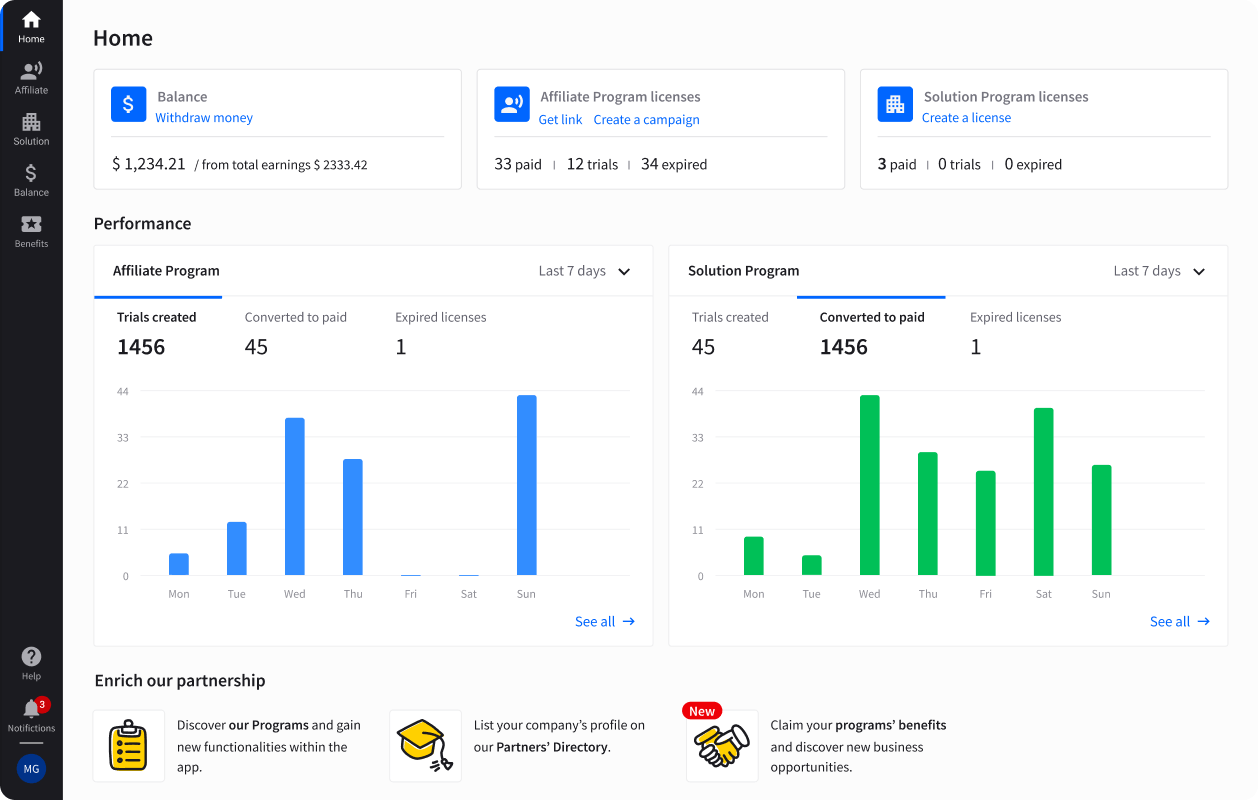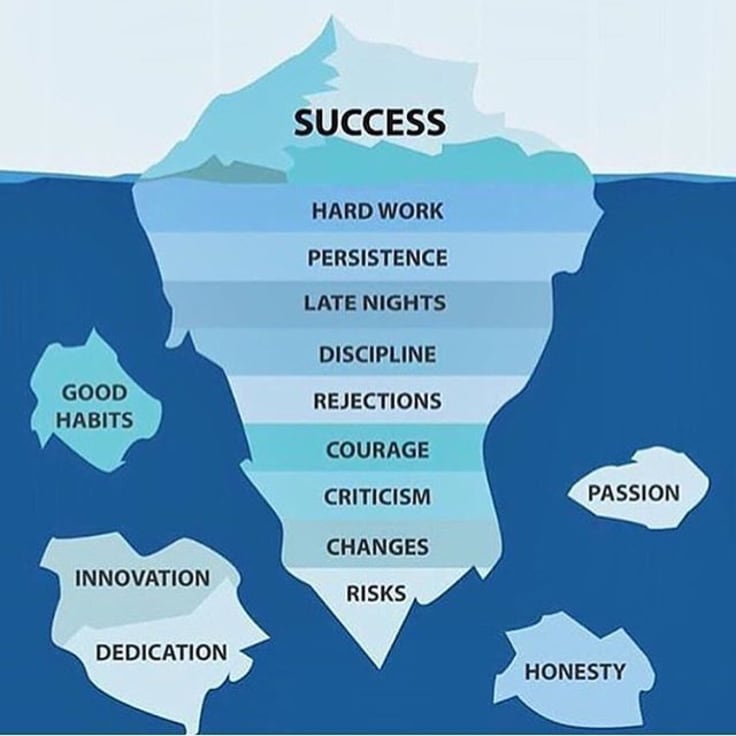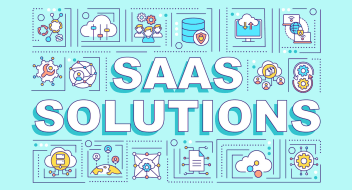Showing top 0 results 0 results found
Showing top 0 results 0 results found

"Solopreneur" might sound like a buzzword. Although this term is interchangeable with entrepreneur, there are a few distinct differences that actually make them two different things.
On a funny note, you can also be a wantrepreneur, so before we jump into the article, let's watch the funny explainer:
I guess now you know the difference between a wantrepreneur, entrepreneur, and solopreneur, but let's focus on these last two.
By the way...
Whether you're a solopreneur or an entrepreneur, joining our program can help you grow your business. Our Partner Program is tailored for those who are passionate about SaaS products and want to earn while promoting tools like LiveChat, ChatBot, and HelpDesk!

1. Defining Solopreneurs and Entrepreneurs
At a glance, solopreneurs and entrepreneurs share a common goal: to build a successful business. However, their approaches and business structures are quite different.
Solopreneur
A solopreneur is someone who runs their business single-handedly. They take on all responsibilities, from product creation and marketing to customer service and finances. Many solopreneurs choose this path to maintain complete control and flexibility in their work life.
Entrepreneur
An entrepreneur typically works within a broader framework, starting and managing businesses with the intention of scaling. Entrepreneurs often delegate tasks, hire employees, and develop systems to ensure the company can grow beyond their efforts.
While solopreneurs enjoy the freedom of being their boss, entrepreneurs focus on building a larger organization that can operate without their constant involvement.

2. Business Models: Solopreneur vs. Entrepreneur
Understanding the differences in business models is essential, especially when deciding which approach aligns with your personal goals.
Solopreneur Business Model
The business model of a solopreneur is often lean and streamlined. Solopreneurs use tools like marketing automation, freelance contractors, and e-commerce platforms to manage everything.
This reduces financial risks, but growth can be slower since there’s a limit to how much one person can do. Many solopreneurs explore small-scale business ideas like:
- Freelancing (e.g., graphic design, content writing)
- E-commerce (managing an online store using platforms like Shopify)
- Consulting (offering specialized expertise)
Solopreneurs focus on lifestyle businesses—ventures designed to sustain a steady income without needing large-scale expansion. This business model particularly appeals to those prioritizing flexibility, autonomy, and work-life balance over rapid growth.
Entrepreneur Business Model
On the other hand, entrepreneurs aim to scale their businesses with a larger team and more resources. Their business models are built around growth, with entrepreneurs often seeking investors or loans to support expansion efforts. Entrepreneurs frequently start businesses that are designed to scale quickly, such as:
- Tech startups
- Marketing agencies
- Franchise operations
Entrepreneurs aim to build systems and teams that allow their businesses to run without their direct involvement in every process.
While the financial risks are higher, the potential rewards—including rapid growth and profit—are much greater. Entrepreneurs are often more comfortable with these risks and seek external funding to fuel their ventures.
Regardless of which model you choose, solopreneurs and entrepreneurs must embrace business goals that align with their long-term vision.
Whether growing a one-person brand or leading a larger team, affiliate marketing is a low-risk way to generate additional revenue and reach new markets.

3. Key Differences Between Solopreneurs and Entrepreneurs
While solopreneurs and entrepreneurs desire to build successful ventures, several key differences set them apart regarding business operations, growth strategies, and financial risk.
Business Structure
A solopreneur operates without full-time employees, often working solo or with the help of freelancers. In contrast, entrepreneurs hire employees, delegate tasks, and build larger teams to achieve business goals.
The lack of employees gives solopreneurs more flexibility but limits their ability to scale quickly. Entrepreneurs have the advantage of delegating and distributing tasks, which enables faster growth but adds to operational complexity.
Control vs. Delegation
Solopreneurs thrive on control and handle everything themselves—from marketing and product development to customer service and finances. This hands-on approach allows solopreneurs to maintain complete control over their business decisions, but it can also be overwhelming as the business grows.
Conversely, entrepreneurs prefer to delegate tasks and build systems that allow their businesses to operate efficiently. By hiring a larger team, entrepreneurs can focus on high-level strategy and growth while their employees handle day-to-day operations.
Financial Risk
One of the most significant differences between solopreneurs and entrepreneurs is the financial risk involved. Entrepreneurs often take on more financial risk by securing funding, hiring employees, and investing in infrastructure. These investments can lead to rapid growth but also have higher stakes.
Solopreneurs usually take a more conservative approach, focusing on low-risk ventures that can be self-funded or operated on a lean budget.
By keeping expenses low and avoiding large investments, solopreneurs can reduce their financial risk, but they may also limit their growth potential.
Growth Potential
Entrepreneurs typically aim for rapid growth to build scalable businesses that can expand quickly. This often involves investing in marketing, product development, and hiring additional staff. Conversely, solopreneurs may prioritize steady, sustainable growth without the pressure to scale rapidly.
Solopreneurs often view their businesses as lifestyle ventures designed to provide steady income while controlling their work-life balance. Entrepreneurs are more focused on building businesses that can grow and scale, with the potential to reach large audiences or enter new markets.
Despite these differences, solopreneurs and entrepreneurs can benefit from using affiliate marketing programs to expand their income streams. Our LiveChat Affiliate Program is designed to suit both business structures.
-> 35 Best Reseller Programs You Can Join Today
4. How our Program Benefits Both Solopreneurs and Entrepreneurs
Whether you run a one-person operation or manage a large team, affiliate marketing can be a powerful tool to grow your business. Here’s why the LiveChat Affiliate Program is designed to benefit both solopreneurs and entrepreneurs:
No Need for Full-Time Employees
Solopreneurs can leverage our affiliate program without the need to hire additional staff. Promoting products like LiveChat, ChatBot, or HelpDesk can generate income while maintaining full control of your operations.
This is ideal for solopreneurs who want to maintain a lean, flexible business without taking on the complexities of managing a larger team. With a 120-day cookie duration, you’ll also receive credit for sales made within four months of your referral, providing plenty of earning potential.
Low Financial Risk
Entrepreneurs looking to scale their businesses can benefit from the low financial risk of affiliate marketing. There’s no need for significant upfront investment, making it a great way to diversify revenue streams.
Plus, the program includes a dedicated Partner App that allows you to track the effectiveness of your campaigns, test different campaign versions, and easily monitor your earnings. This is an invaluable resource for entrepreneurs focused on maximizing their marketing strategies.
SaaS Products in High Demand

Whether you’re a solopreneur or an entrepreneur, promoting high-quality SaaS products like HelpDesk, ChatBot, and LiveChat allows you to tap into the growing demand for customer service and engagement tools.
Trusted by over 46,000 companies across 150 countries, including major brands like Huawei, PayPal, and Mercedes-Benz, these products offer substantial value to businesses of all sizes.
Whether consulting for clients or managing your website, these tools practically sell themselves, making it easier to earn commissions through referrals.
Affiliate Program with Great Payouts
Our affiliate program offers commission rates of up to 22% and performance-based tiers that offer room for additional growth and rewards. Promoting LiveChat products becomes straightforward and efficient with marketing assets provided for bloggers, agencies, and content creators.
Plus, our custom affiliate link builder allows you to offer exclusive discounts and longer trial periods to your audience, increasing conversion rates.
One of the standout features of the LiveChat Affiliate Program is its high earning potential. Our top affiliate has earned over $4,000,000 to date, proving the lucrative nature of this opportunity. Even if you’re starting as an affiliate marketer, you can expect substantial growth as you refine your campaigns.
Ready to start your entrepreneur path?
Join one of our programs that suits you best and grow along with us!

5. Choosing the Right Path: Solopreneur or Entrepreneur?
Becoming a solopreneur or entrepreneur depends largely on your personal goals, risk tolerance, and long-term vision for your business. Both paths offer unique advantages and challenges.
Solopreneur Path
If you’re looking for a business structure that allows you to maintain control, reduce risks, and work at your own pace, solopreneurship might be for you.
Many solopreneurs start businesses with minimal capital, often turning hobbies or passions into viable income streams. Solopreneurs typically prioritize:
- Flexibility: The ability to set your schedule and work on projects that interest you.
- Control: Full business ownership allows you to make decisions without consulting others.
- Low overhead: Minimal expenses and no need for full-time employees, which reduces financial risks.
Entrepreneur Path
Entrepreneurship may be your calling if you prefer building a larger company, managing teams, and aiming for rapid growth. Entrepreneurs often seek external funding, hire employees, and create scalable systems for long-term success. Entrepreneurs typically prioritize:
- Growth: Rapid expansion and scaling of the business beyond personal limitations.
- Team-building: Delegating tasks and building a reliable team to handle operations.
- Risk-taking: Higher financial risk in exchange for greater rewards and growth potential.
Regardless of which path you choose, affiliate marketing offers a valuable opportunity to generate income and scale your business without taking on additional financial risk.
Whether you’re a solopreneur looking to earn extra income or an entrepreneur aiming to diversify your revenue streams, the LiveChat Affiliate Program provides the tools and support you need to succeed.
-> Best Affiliate Programs to Fill Your Wallet in 2024
6. Key Takeaways for Affiliate Marketers
For affiliate marketers passionate about SaaS products, the LiveChat Partner Program is an excellent opportunity to align with a business model that suits your style. Whether you are a solopreneur or an entrepreneur, our program offers the tools and resources you need to succeed.
- Solopreneurs can benefit from a steady, low-risk income stream by promoting our products.
- Entrepreneurs can use affiliate marketing to scale their businesses without taking on additional operational costs.
Either way, you’ll promote trusted, in-demand products that help businesses improve customer interactions and efficiency.

Ready to Ditch Your Corporate Job?
Whether you’re a business owner running a one-person show or leading a marketing agency, our Partner Program benefits both.
Solopreneurs can explore solopreneur business ideas, like being an affiliate marketer, while enjoying less financial risk. Entrepreneurs can join our Solution Program and leverage the growing demand for SaaS products to scale their ventures.
No matter your business structure, our programs help you earn while promoting tools your audience will love, enabling you to achieve your business goals—whether maintaining control or scaling to new heights!


